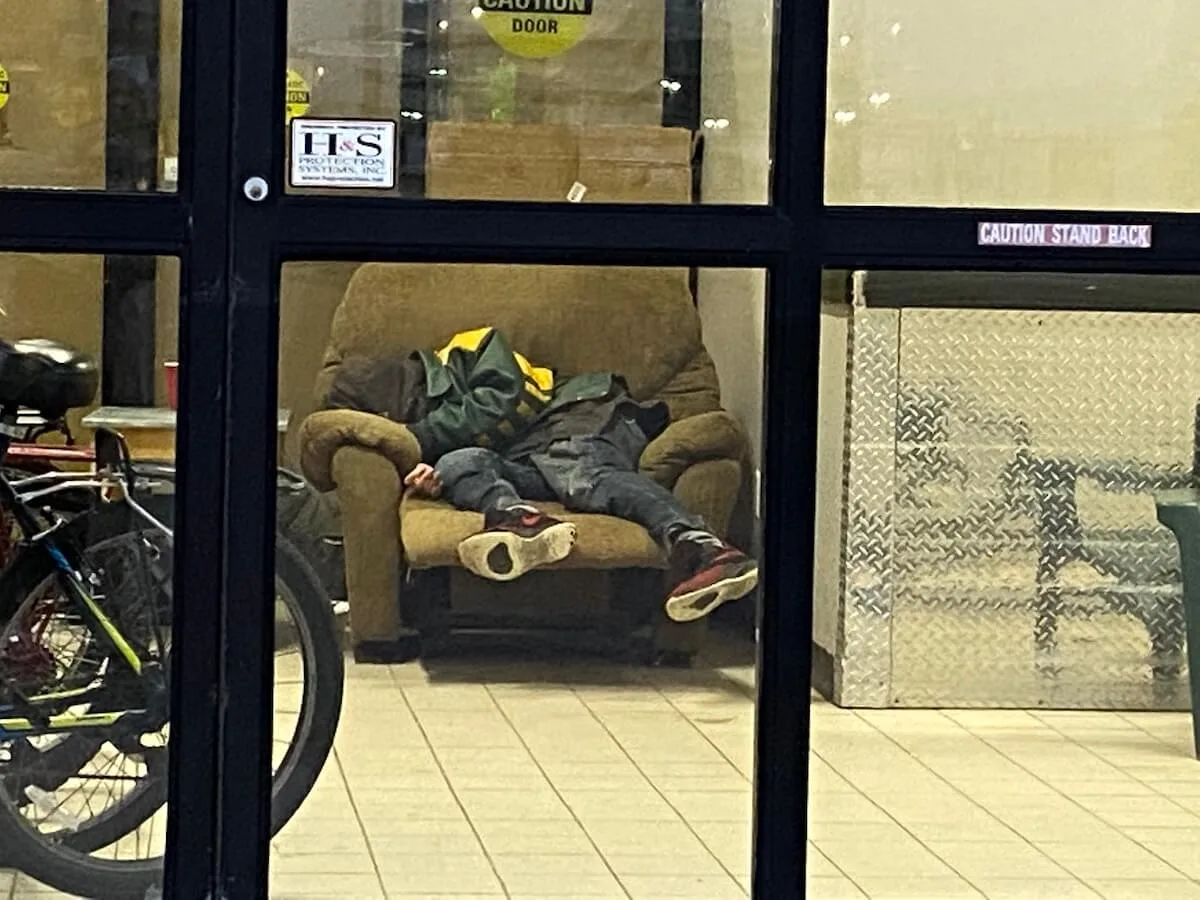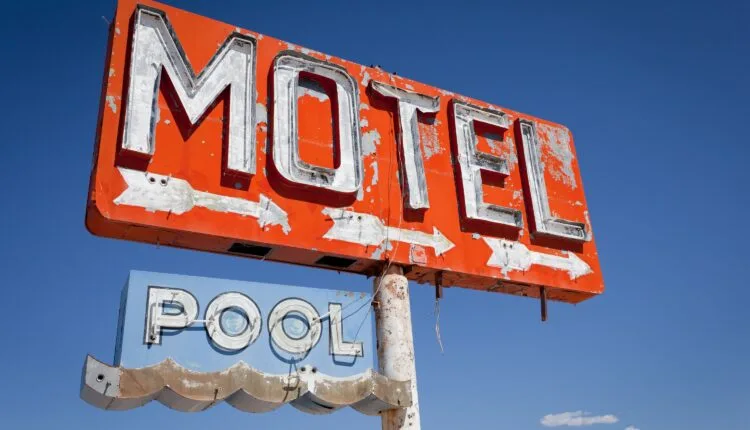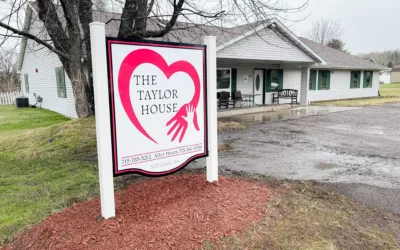
#image_title
Occupants of an Eau Claire shelter are under quarantine, a GoFundMe account is keeping a shelter afloat in Menominee, and capacity has dropped more than 30% at one Milwaukee shelter.
For the past nine years, as temperatures dropped and bitter winter weather approached, organizers of the Stepping Stones of Dunn County homeless shelter reconfigured one of the two homes where the agency houses families during warm-weather months into space to provide homeless single people a welcome respite from the cold.
That isn’t happening this year, thanks to the ongoing coronavirus pandemic. The home given the title Winter Haven that typically houses 10 homeless single people from November through April lacks enough space for them to remain socially distant and prevent the potentially deadly virus from spreading.
This winter, the site will continue to house homeless families, but the single homeless people who would have spent nights there will have to find other places to stay or face the life-threatening danger of living outdoors.
“We’re very worried about what the people who usually stay in our shelter will do this winter,” said Heidi Hooten, shelter coordinator at Stepping Stones. “With the harsh winter weather we have, we need to find a place for people in need to stay.”
The closure of Winter Haven is just one example of struggles homeless shelters face amid the ongoing coronavirus pandemic.
A homeless shelter in Eau Claire has restricted access to its clients after 29 tested positive for the coronavirus. A Milwaukee shelter is being forced to reduce occupancy by 33%, from 300 to 200 homeless individuals. In Wausau, a warming center was temporarily forced to relocate, and in Menominee, a GoFundMe campaign is footing the bill for homeless individuals to stay at a hotel, as a waiting list for others needing shelter grows to 25.
Since the virus surfaced in the state in March and skyrocketed in recent weeks, it has surged through homeless communities, with some shelters reporting as many as half of their clients and significant numbers of staff having contracted COVID-19.
The virus spreads easily in the homeless community and the shelters that serve them due to people staying in close proximity to each other along with a lack of supplies such as masks, personal protective equipment, thermometers, and hand sanitizer. The situation is exacerbated by lack of funding and a growing shortage of volunteers who fear they will be exposed to the virus.
The coronavirus pandemic has significantly altered and reduced the ability of shelters to serve homeless people in Wisconsin, said Carrie Poser, director of the Balance of State Continuum of Care that oversees shelters and other efforts to address homelessness statewide.
“People are concerned about entering a congregate setting, so we have seen an increase in unsheltered homelessness,” Poser said.
That is the situation in Eau Claire, where an outbreak of COVID-19 cases at the Sojourner House homeless shelter has forced a temporary quarantine of the site, meaning other homeless people aren’t allowed in until those cases are resolved.
Two weeks ago 25 people staying at Sojourner House tested positive for the virus, and four more did so last week, Poser said. About half of the shelter’s staff contracted the virus as well, prompting concerns the site that serves as Eau Claire’s main shelter for single homeless people may be shut down this winter, forcing those who use it out into dangerous weather.
Adding to worries is the fact that finding volunteers to fill in for staff quarantined because of exposure to COVID-19 is especially challenging, Poser said. Most of those volunteers are elderly and could more easily be infected with the virus.
“Sojourner House is definitely at risk [of closing this winter] because of staff impacted by COVID and the lack of available volunteers,” she said.
Because of those continued coronavirus outbreaks, Sojourner House has not accepted new homeless clients since Nov. 5, Poser said, meaning more homeless people have nowhere to go. That situation is concerning as the weather turns colder and winter approaches, she said.
“A huge problem continues to be that Sojourner House isn’t taking new people,” Poser said, noting the shelter may resume accepting new people again beginning Nov. 26, depending on COVID-19 numbers at the site. “So where do the folks who are still homeless go?”
‘No easy answers’
Eau Claire City-County Health Department Director Lieske Giese said the spread of the virus at Sojourner House and among Eau Claire’s homeless population “is certainly a big concern.” The health department is paying for homeless people who test positive for COVID-19 to stay at motels while they quarantine, she said, but doing so is expensive and many hotels aren’t willing to house them.
Like Poser, Giese said she also worries about Sojourner House retaining enough COVID-19-free staff and volunteers to remain open as the weather turns colder.
“I know that they are working hard to get enough volunteers,” Giese said. “The worst thing we could have happen in this situation is to have a large homeless population on the streets with no place to stay.”
Other homeless shelters report struggles as they must reduce the numbers they serve because of social distancing requirements due to the contagious virus, even as the need for shelter increases with the onset of winter. The Milwaukee Rescue Mission typically houses about 300 people this time of year but has been forced to reduce that number to 200 because of concerns about COVID-19 spread.
In Wausau, a warming center operated by Catholic Charities of the Diocese of La Crosse was forced to relocate temporarily to the local YWCA after the coronavirus outbreak in the spring and recently needed to find another new home. First United Methodist Church of Wausau recently announced it will use its basement as a homeless shelter, with room for 25 to 30 people to spend nights, the city’s Mayor Katie Rosenberg said.
The city assisted with the endeavor, paying for showers to be installed at the church. The basement will be outfitted with partitions between beds and a separate area has been designated for meals, efforts to prevent virus spread.
“We’re grateful for this location, because without it this situation was looking bleak,” said Rosenberg, whose city and surrounding Marathon County are among current COVID-19 hot spots in Wisconsin.
While that effort will help, homeless residents in many other locations don’t have alternate places to stay with COVID-19 restrictions limiting shelters’ capacities, Poser said. While the state has acted to prevent people from being foreclosed on or evicted, it has not addressed the already homeless population, she said.
Without further investment in housing, more landlords willing to house homeless people, and money for case management “we will have more people homeless and less ways to help,” Poser said.
In Menomonie, Hooten and others worry where those who would have stayed at Winter Haven will wind up this winter. A GoFundMe effort has raised about $15,000 so far to pay for homeless people there to stay in hotels during winter months. That total represents a good start, she said, but falls far far short of the cost to house the city’s homeless population during winter months.
In the meantime, the waiting list for people seeking shelter in Menomonie has grown significantly this year, Hooten said, and currently numbers 25.
“I don’t know where we get the resources for this issue,” she said. “This is a growing problem with no easy answers.”

Walz and Vance offer wildly different visions for how to solve America’s housing shortage
During Tuesday’s vice presidential debate, Tim Walz highlighted the importance of building more affordable homes for families and holding...

America’s hottest housing market? A Wisconsin city of 66,000!
Turns out there’s much more to Oshkosh than its annual summer air show... Wisconsin's 9th-biggest city was just named America’s #1 real estate...

Wisconsin towns will turn old motels, schools into affordable housing
Several Wisconsin communities — including Ladysmith, Rhinelander, and Elkhart Lake — are addressing their workforce housing needs with new...

The best months to buy (& sell) a Wisconsin house in 2024
Wisconsin has been a seller’s market for more than two years. Since March 2022, average home prices have increased by roughly 7%, while statewide...




